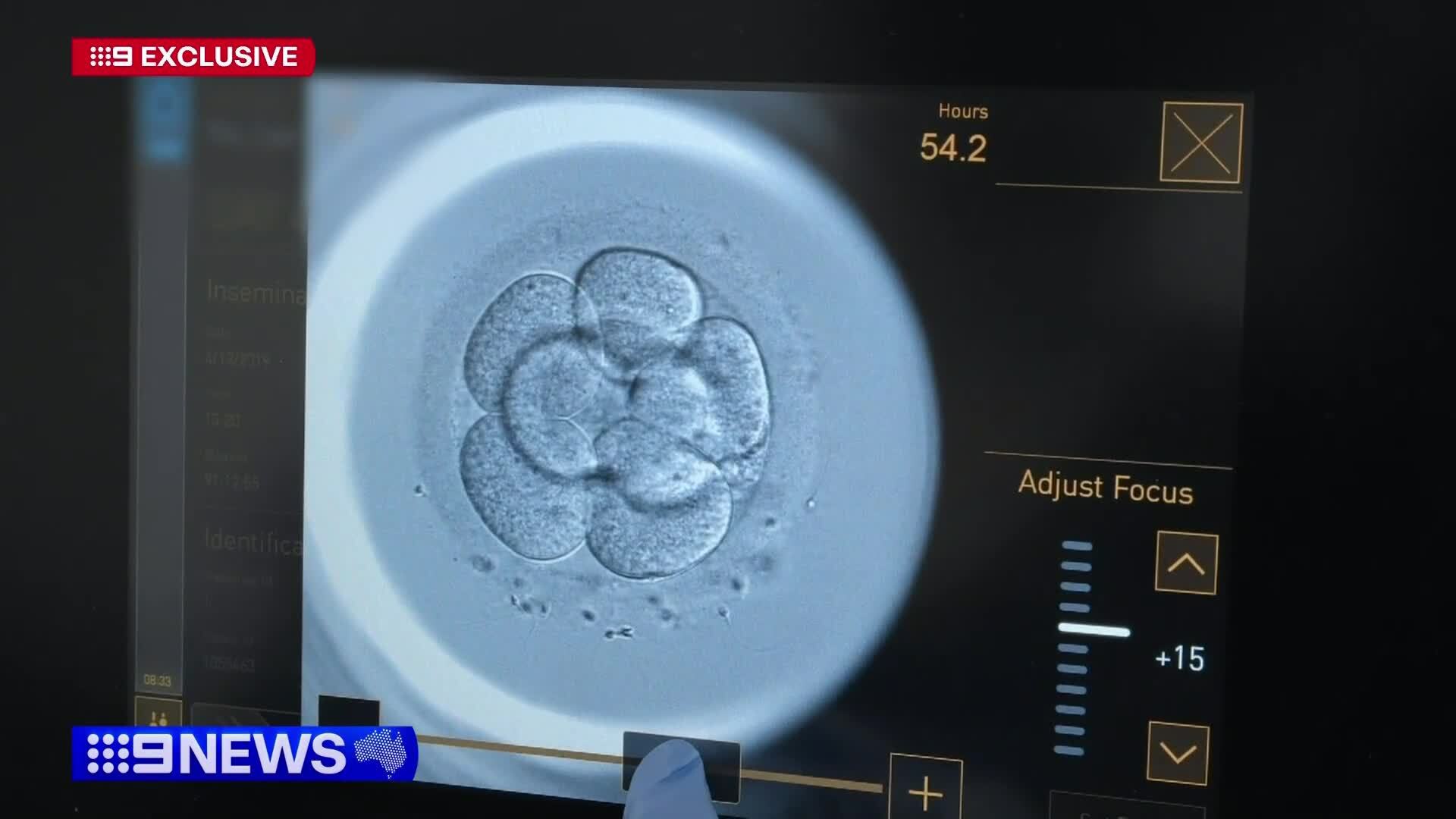There's renewed hope for those struggling to conceive, with more than 200 women falling pregnant through Australia's first public IVF program.
The Victorian service has no out-of-pocket costs and aims to make it easier and fairer for families to try for a baby.
This was the case for Suong Cassar and her husband Daniel.
READ MORE: 'Deeply loved' toddler mourned after being killed by car at pedestrian crossing
Suong was diagnosed with endometriosis, giving her little hope of conceiving naturally.
Because her condition was so severe, the couple were told they needed to go through IVF.
It would've been an expensive process, if not for Australia's first publicly-funded fertility program.
"This is the real deal now I'm actually having a little baby inside me. Just excited," Suong said.
"I know people who are paying like close to a $100,000 to get the result – and with us pretty much $0."
"There's so many things you need to plan for and stress over, finance just hasn't been one of them," Daniel said.
After two egg collections, a total of 25 eggs were retrieved and little Johnny was born.
It was the result of the first embryo transfer at the Royal Women's Hospital.
READ MORE: RBA pours cold water on common theory blamed for skyrocketing rents
"For me with my condition I honestly didn't think it was going to happen straight away – a miracle to be honest," Suong said.
"At the start it was all so surreal. It didn't really sink in until a month before the due date," Daniel said.
The public fertility care service is nearing 12 months of operation.
Dr Rashi Kalra said the service has already had 43 babies born with another 227 women who are currently pregnant and hoping to deliver soon.
The service is encouraging more Victorians to take part.
"We look after couples who suffers from infertility from different reasons," associate professor Wah Teh said.
"People from the LGBTQIA+ community as well as people who require fertility preservation."
Wait times are currently about six to eight weeks for a first appointment and three to four weeks for nursing and counselling sessions before people can actually start fertility treatment.





